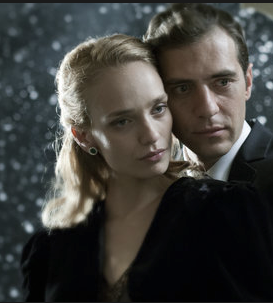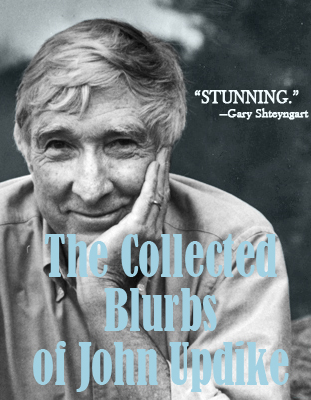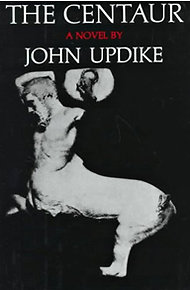 If you haven’t renewed your membership in The John Updike Society by paying your 2013 dues—and only a fifth of current members have done so—please send a check made payable to The John Updike Society to James Plath, 1504 Paddington Dr., Bloomington, IL 61704. Dues are $25/year, $20 for grad students and retirees.
If you haven’t renewed your membership in The John Updike Society by paying your 2013 dues—and only a fifth of current members have done so—please send a check made payable to The John Updike Society to James Plath, 1504 Paddington Dr., Bloomington, IL 61704. Dues are $25/year, $20 for grad students and retirees.
At a time when money is needed to move forward with the renovation of The John Updike Childhood Home at 117 Philadelphia Ave. in Shillington, member donations are now approaching $1000. Thanks to Bruce Moyer, Kathleen Olson, Gerald Connors, Livia Lloyd-Hawkins, Alan and Maureen Phipps, Steve Malcolm, Don Greiner, Jay Althouse, Kevin Schehr, Janice Fodor, Ward Briggs, Richard L. Chafey, and Mark Roosevelt for their generosity and for helping us get a nice start on raising the money ($10,000) needed to scrape, repair, and paint the outside of the brick building.
The John Updike Society is a 501 c 3 organization, and everyone who makes a donation will receive a letter of thanks and acknowledgment that can be used for tax purposes.
What’s new at the house? The single-story annex has just been remodeled, so now the Society can find a tenant to lease the three rooms formerly used as patient examination rooms by Dr. Hunter, who bought the house from the Updikes. Pictured is the doctor’s former office just off the front entrance to the original part of the house, which will be used as a gift shop for The John Updike Childhood Home. A still-operational x-ray viewing screen was left on the wall of one exam room as a reminder of the contributions that the Hunter family made to the house where Updike said his “artistic eggs were hatched.”
 A.O. Scott writes in his description of new film “The Color of the Chameleon” by Bulgarian director Emil Christov, “As a storyteller and a maker of images, Mr. Christov demonstrates a remarkable, exuberant sense of strangeness. And also a very specific appreciation for the early work of John Updike.”
A.O. Scott writes in his description of new film “The Color of the Chameleon” by Bulgarian director Emil Christov, “As a storyteller and a maker of images, Mr. Christov demonstrates a remarkable, exuberant sense of strangeness. And also a very specific appreciation for the early work of John Updike.”





